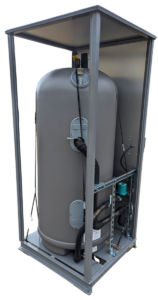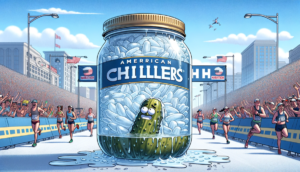Glycol or anti-freeze is a given in cold weather to prevent frozen pipes and chiller damage, but using glycol will also help to keep your system in proper working condition for many years to come.
DON’T USE THESE GLYCOLS
The lowest cost and readily available types of glycol are automotive and RV antifreeze, neither of which will hold up to the repeated heating and cooling and may clog and damage your system over time.
INHIBITED PROPYLENE GLYCOL
We recommend an inhibited propylene based glycol solution specially formulated for HVAC cooling systems. It contains corrosion inhibitors and pipe lubricants to enhance heat exchange. It will keep solids in suspension and prevent them from clinging to the walls of the heat exchangers and piping. Propylene based glycols are also non-hazardous and are made with food grade ingredients.
OTHER GLYCOLS
There are other glycol products available such as ethylene glycol that will work with your system. Check with your American Chillers Representative or refer to your chiller installation manual prior to using. Do not mix glycol types.
THE PROPER RATIO
American Chillers are engineered to operate at full capacity with a 40% propylene glycol mixture. Under extreme cold ambient conditions and for glycol fluid temperatures below 45F degrees, a higher glycol percentage may be required.



